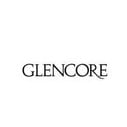Glencore signs strategic partnership with Li-Cycle Holdings

Glencore has launched a strategic partnership with Li-Cycle Holdings Corp, a leading lithium-ion battery recycler in North America.
Glencore will invest $200mn in Li-Cycle - subscribing for convertible debt - and it will become a preferred partner for the mining company in the lithium-ion battery recycling sector. Li-Cycle recovers critical materials from lithium-ion batteries and reintroduces them back into the supply chain.
The key commercial arrangements will start on closing of the subscription and will include:
- procuring feedstock for Li-Cycle Spoke facilities and black mass for Li-Cycle’s Hub facilities
- offtake of black mass from Li-Cycle’s Spoke facilities
- offtake of battery usable end products produced by Li-Cycle
- offtake of by-products from Li-Cycle’s facilities; and
- supplying Li-Cycle’s sulfuric acid requirements for its Hub facilities
Glencore has been working on establishing regional platforms across the world to localise battery raw material supply chains within key regions in a scalable and sustainable manner, enabling a set of key partners to connect to these platforms and sees Li-Cycle as a key strategic partner in this effort.
With the addition of this strategic partnership with Li-Cycle, Glencore will seek to combine primary and recycled battery raw materials to produce battery grade end products.
This will enable auto manufacturers to meet their EV ambitions while also being able to meet key regulatory directives related to battery raw materials. This will be facilitated through the localisation of supply chains and increasing recycled content in battery raw materials over time.
In Europe, Glencore will work to assess the feasibility of utilising our existing asset footprint with a view towards re-purposing some of its assets, reducing the lead time for achieving industrial scale production of battery grade end products.
Glencore will also explore, together with other appropriate supply chain partners, the production of precursor cathode active material (pCAM) in Europe and potentially North America.
Kunal Sinha, Head of Recycling at Glencore, said: “We both believe that battery recycling will form a key part of the energy transition. Our bold aim is to help support the creation of a genuinely circular economy that supplies recycled materials and minerals back into the battery supply chain. We are united in our ambition to further the energy and mobility transition."
He added Glencore’s net zero total emissions reduction strategy is supported by such key investments, which complement its existing investments and relationships with partners in the battery and EV space.
"Bringing our complementary capabilities together will accelerate the path to a circular economy for critical materials in the lithium-ion battery supply chain,” said Ajay Kochhar, Li-Cycle Co-Founder and CEO. “These agreements further secure and diversify our lithium-ion battery supply and feedstock sources, competitively positioning our network expansion in North America and Europe.”
Li-Cycle processes batteries within a water-based solution, recovering up to 95% of resources (eg nickel, lithium, cobalt and copper), producing minimum clean water discharge.
If Glencore elects to convert during the conversion option period, Glencore would hold an approximate 10% equity stake in Li-Cycle. Upon closing, Glencore will have the right to nominate one board member to the Li-Cycle board. Sinha will be nominated by Glencore.
It marks another key battery recycling venture for Glencore, which announced Britishvolt as another strategic partner in February. A new recycling plant is being developed at the Britannia Refined Metals (BRM) operation in Northfleet (click here).
CEO Gary Nagle said for the most part, the group’s quarterly production was in line with expectations.
However, production in Q1 2022 reflects a number of temporary impacts, including geotechnical challenges at Katanga and Covid-19 absenteeism, particularly in Australia. Koniambo’s Q4 2021 higher operating rates continued into Q1 this year, while overall coal production, on a like-for-like basis, reflecting our increased Cerrejón ownership, was broadly flat period-on-period.
Reflecting the Q1 production performance, full-year guidance is reduced for copper and cobalt, but increased for nickel and ferrochrome, while the slower than expected ramp-up at Zhairem reduces full-year zinc production guidance by 9%.
“Our Marketing activities were supported during the quarter by tight physical market conditions and periods of extreme volatility. Extrapolating our Q1 performance would see our Marketing segment’s full-year earnings comfortably exceeding the top end of our long-term Adjusted EBIT guidance range of $2.2-3.2bn p.a," he said.

